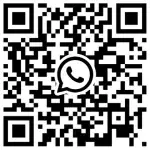DFB COACH EDUCATION REFORM 2022
Thiago Calderaro
In 2022, the German Football Association (DFB) implemented a sweeping reform of its coaching education, introducing significant changes to the licensing system. This reform has sparked debate, particularly among young, ambitious coaches who feel marginalized by a system that erects high barriers and restricts access to professional coaching licenses.
Demotivating Points Allocation
A major criticism of the new system is the points allocation, which currently heavily favours former professional players and academics with a background in sports science. For example, ex-professionals automatically receive five points for each season played in the Bundesliga, while a Master's degree in Sports Science yields 15 points. In contrast, long-term coaching at lower levels, such as managing a team in the Oberliga, is only rewarded with one point per season. This imbalance disadvantages experienced coaches from the amateur or semi-professional sectors.
Surge in License Fees
The cost of obtaining coaching licenses has skyrocketed since the reform. The fee for the Pro License, required for coaching professional and national teams, now stands at 19,000 euros, plus accommodation and additional costs, up from 13,000 euros before the reform. Even the A License, needed for the Regional League, now costs 6,000 euros, a significant increase from the previous price of 850 euros. These price hikes have made coaching education financially prohibitive for many dedicated and talented coaches, significantly limiting diversity.
DFB's Monopoly and Market Domination
The DFB not only controls the allocation of licenses but also sets the prices, giving it a monopoly position. This raises concerns about the fairness and transparency of the system. By reducing the number of available spots and increasing the costs, many potential top coaches are denied the opportunity to fully realize their potential. For instance, the DFB has reduced the number of Pro Licenses from 24 to 16, which the organisation justifies as a move towards better quality and more personalized care.
Lack of Transparency and Fairness in the Selection Process
The new concept of bonus spots, awarded through recommendation letters, is perceived as opaque and potentially unfair. This practice, often regarded as nepotism, makes it difficult to understand how these recommendations are ultimately assessed and places allocated. For example, coach Marc Unterberger from SpVgg Unterhaching received such a bonus spot despite not having enough points.
Conclusion: The Need for Further Reform
The coaching education provided by the DFB should enhance the quality of German coaches and create fairer access opportunities. However, many face a system that is financially and structurally inaccessible, potentially leaving talent at the grassroots level untapped. It is hoped that the DFB will respond to the criticism and make adjustments to ensure a fair and inclusive training system that accommodates all coaches, regardless of their financial situation or previous professional background.
Overview of the New Licenses
Kids Coach Certificate
DFB Junior Coach
DFB Basis Coach
UEFA C License
UEFA B License
B+ License (UEFA Youth B)
UEFA A License (UEFA A)
A+ License (UEFA Elite Youth A & UEFA A)
UEFA Pro License
Sources
https:www.youtube.com/watch?v=uNd5H5jB0Og
https://www.dfb-akademie.de/entwicklungstreppe-fuer-trainerinnen/-/id-11009546/
Continue Reading
This might also interest you:







